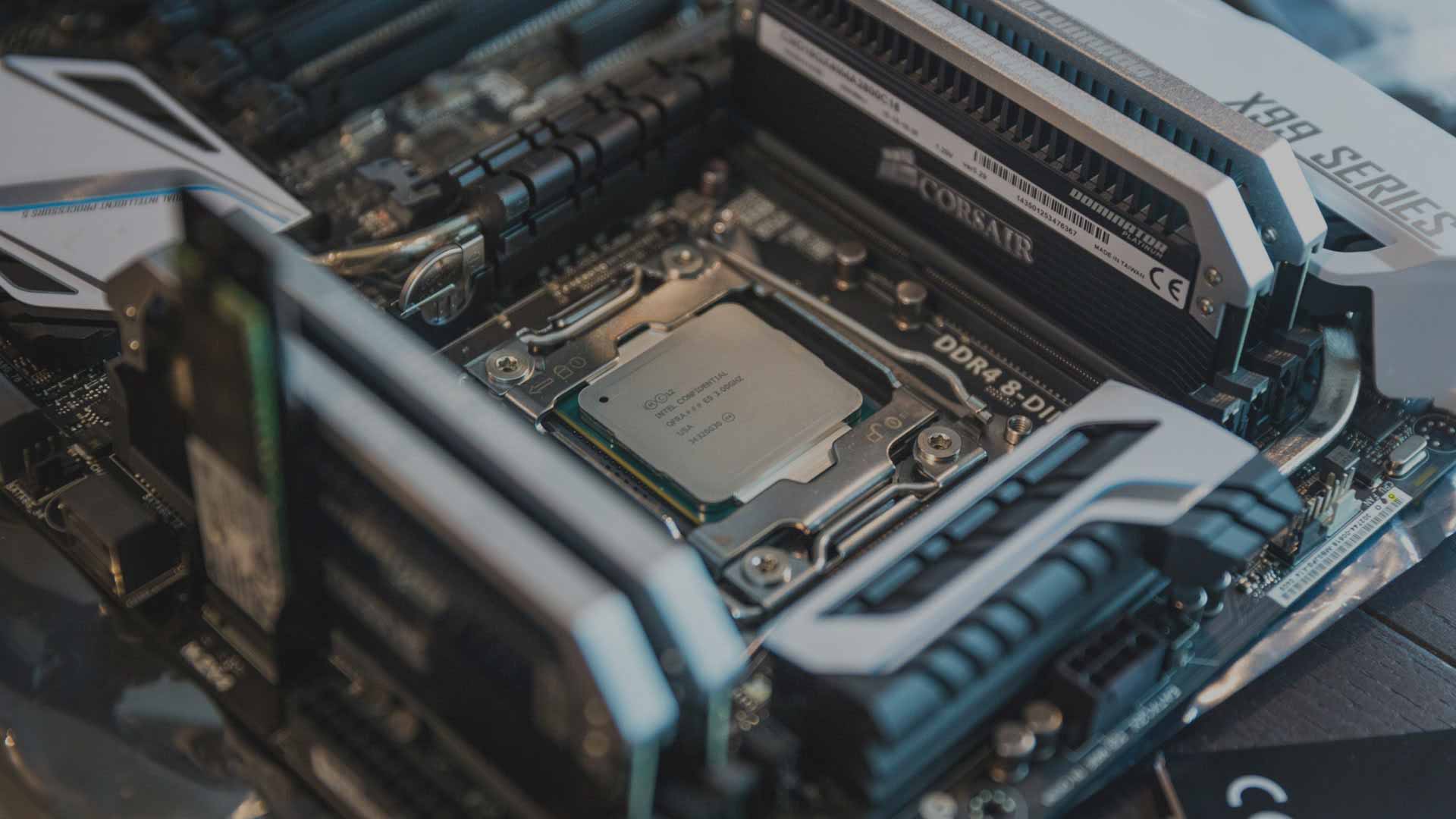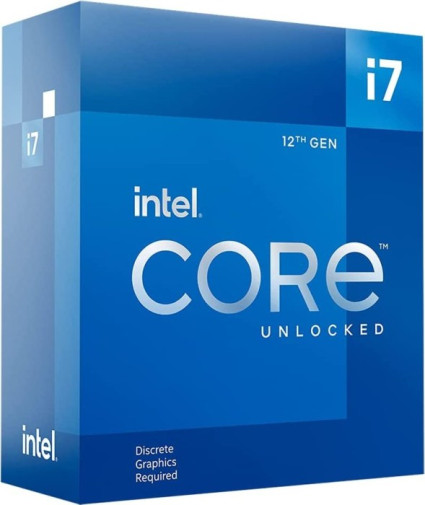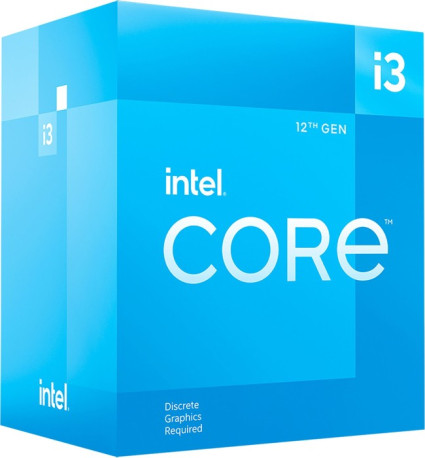
Intel Core i7-12700KF vs. Intel Core i3-12100F
In diesem Vergleich von Intel Core i7-12700KF versus Intel Core i3-12100F vergleichen wir die technischen Daten der beiden CPUs. Welcher Prozessor ist schneller? Hier gibt es FPS & Benchmarks in Gaming und Anwendungen.
Hinweis: Unsere Links sind Affiliate Links. Wir erhalten beim Kauf eine kleine Provision, ohne dass sich euer Preis erhöht.

Allgemeine Informationen
| Günstigster Preis |
|
|
| Serie | Intel Core i-12000 | Intel Core i-12000 |
| Chip-Architektur | Golden Cove (P-Core) + Gracemont (E-Core) | Golden Cove |
| Codename | Alder Lake-S | Alder Lake-S |
| Produktname | Intel Core i7-12700KF | Intel Core i3-12100F |
Spezifikationen
Die Anzahl der Rechenkerne, die maximale Taktrate und die Größe des Cache können sich auf die Leistung in Spielen und Anwendungen auswirken. Mit 12 Kernen bietet der Intel Core i7-12700KF deutlich mehr Kerne als der Intel Core i3-12100F mit 4 Rechenkernen. Der maximale Takt liegt beim Intel Core i7-12700KF mit 5.00 GHz höher als beim Intel Core i3-12100F mit 4.30 GHz. Der Cache ist beim Intel Core i7-12700KF mit 12 MB L2-Cache + 25 MB L3-Cache zu 5 MB L2-Cache + 12 MB L3-Cache deutlich höher als beim Intel Core i3-12100F.
| Kerne (Gesamt) | 12 | 4 |
| Anzahl P-Cores | 8C | 4C |
| Anzahl E-Cores | 4c | - |
| Basis-Takt | 3.60 GHz | 3.30 GHz |
| Takt P-Cores | 3.60 GHz | 3.30 GHz |
| Takt E-Cores | 2.70 GHz | - |
| Turbo-Takt | 5.00 (Turbo Boost Max 3.0) GHz | 4.30 GHz |
| Turbo P-Cores | 5.00 (Turbo Boost Max 3.0) GHz | 4.30 GHz |
| Turbo E-Cores | 3.80 GHz | - |
| Gesamter L2-Cache | 12 MB | 5 MB |
| Gesamter L3-Cache | 25 MB | 12 MB |
| Fertigung | Intel 7 | Intel 7 |
| Rechenleistung | - | - |
| Leistungsaufnahme (TDP) | 125W (Processor Base Power) 190W (Maximum Turbo Power) |
58W (Processor Base Power) 89W (Maximum Turbo Power) |
Mainboard-Kompatibilität
Sowohl der Intel Core i7-12700KF als auch der Intel Core i3-12100F setzen auf den Sockel Intel 1700.
| Sockel | Intel 1700 | Intel 1700 |
| Chipsatz-Eignung | B660, B760, H610, H610E, H670, H770, Q670, Q670E, R680E, W680, Z690, Z790 | B660, B760, H610, H610E, H670, H770, Q670, Q670E, R680E, W680, Z690, Z790 |
| PCIe-3.0-Lanes | - | - |
| PCIe-4.0-Lanes | 4x | 4x |
| PCIe-5.0-Lanes | 16x | 16x |
RAM-Kompatibilität
Während Sie beim Intel Core i7-12700KF bis zu 128 GB vom Typ DDR4/DDR5 im Dual Channel verbauen können, unterstützt der Intel Core i3-12100F bis zu 128 GB DDR4/DDR5 Arbeitsspeicher.
| Speicher-Controller | DDR4/DDR5 | DDR4/DDR5 |
| Anzahl Speicherkanäle | Dual Channel | Dual Channel |
| max. Speichermenge | 128 GB | 128 GB |
| ECC-Unterstützung | - | - |
Grafik
| iGPU | - | - |
| iGPU-Modell | - | - |
| iGPU-Takt | - | - |
| iGPU-Einheiten | - | - |
| iGPU-Rechenleistung | - | - |
| iGPU-Architektur | - | - |
| iGPU-Interface | - | - |
| iGPU-Funktionen | - | - |
Sonstiges
| Freier Multiplikator | ✓ | - |
| Stepping | C0, Spec Code: SRL4P | H0, Spec Code: SRL63 |
| Heatspreader-Kontaktmittel | Metall/verlötet | Metall/verlötet |
| Temparatur max. | 100°C (Tjunction) | 100°C (Tjunction) |
| Fernwartung | - | - |
| Einführung | 2021/Q4 (4.11.2021) | 2022/Q1 (4.1.2022) |
| Herstellergarantie | 3 Jahre bei Intel® Boxed-Prozessoren (Info DE/Info EN) | 3 Jahre bei Intel® Boxed-Prozessoren (Info DE/Info EN) |
CPU-Funktionen
| AES-NI | ✓ | ✓ |
| AVX | ✓ | ✓ |
| AVX2 | ✓ | ✓ |
| Boot Guard | ✓ | ✓ |
| CET | ✓ | ✓ |
| DL Boost | ✓ | ✓ |
| EIST | ✓ | ✓ |
| GNA 3.0 | ✓ | ✓ |
| Idle States | ✓ | ✓ |
| Instruction Set | ✓ | ✓ |
| ISM | ✓ | ✓ |
| MBEC | ✓ | ✓ |
| Optane Memory Support | ✓ | ✓ |
| OS Guard | ✓ | ✓ |
| Secure Key | ✓ | ✓ |
| Speed Shift | ✓ | ✓ |
| SSE4.1 | ✓ | ✓ |
| SSE4.2 | ✓ | ✓ |
| Thermal Monitoring | ✓ | ✓ |
| VMD | ✓ | ✓ |
| VT-d | ✓ | ✓ |
| VT-x | ✓ | ✓ |
| VT-x EPT | ✓ | ✓ |
| XD Bit | ✓ | ✓ |
Spiele

- Intel Core i7-12700KFAVG100.00 %1%100.00 %
- Intel Core i3-12100FAVG66.96 %1%64.38 %

- Intel Core i3-12100FAVG88.2 FPS1%55.7 FPS
- Intel Core i7-12700KFAVG223 FPS1%157.4 FPS

- Intel Core i3-12100FAVG327.6 FPS1%204.6 FPS
- Intel Core i7-12700KFAVG515.4 FPS1%265.2 FPS

- Intel Core i3-12100FAVG98.4 FPS1%57.9 FPS
- Intel Core i7-12700KFAVG140.8 FPS1%100.3 FPS

- Intel Core i3-12100FAVG142.2 FPS1%100.7 FPS
- Intel Core i7-12700KFAVG185.2 FPS1%131.1 FPS

- Intel Core i3-12100FAVG105.4 FPS1%74.2 FPS
- Intel Core i7-12700KFAVG137.2 FPS1%100.6 FPS

- Intel Core i3-12100FAVG160 FPS1%88.7 FPS
- Intel Core i7-12700KFAVG214.6 FPS1%141.1 FPS

- Intel Core i3-12100FAVG59.6 FPS1%44.4 FPS
- Intel Core i7-12700KFAVG77.2 FPS1%58.8 FPS

- Intel Core i3-12100FAVG147.1 FPS1%80.2 FPS
- Intel Core i7-12700KFAVG256.5 FPS1%143.6 FPS

- Intel Core i7-12700KFAVG1.08 FPSIntel Core i3-12100FAVG2.50 FPS

- Intel Core i7-12700KFAVG2.55 FPSIntel Core i3-12100FAVG2.79 FPS
Produktivität
Produktivität

- Intel Core i7-12700KFAVG100.00 %Intel Core i3-12100FAVG58.59 %

- Intel Core i7-12700KFPKT106592 PunkteIntel Core i3-12100FPKT42943 Punkte

- Intel Core i7-12700KFPKT1293 PunkteIntel Core i3-12100FPKT893 Punkte

- Intel Core i7-12700KFPKT846 PunkteIntel Core i3-12100FPKT474 Punkte

- Intel Core i7-12700KFSEK281 SekundenIntel Core i3-12100FSEK758 Sekunden

- Intel Core i7-12700KFPKT1149 PunkteIntel Core i3-12100FPKT400 Punkte

- Intel Core i7-12700KFPKT2807 PunkteIntel Core i3-12100FPKT1910 Punkte

- Intel Core i7-12700KFPKT15251 PunkteIntel Core i3-12100FPKT7918 Punkte

- Intel Core i7-12700KFSEK71 SekundenIntel Core i3-12100FSEK188 Sekunden




